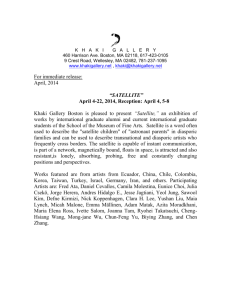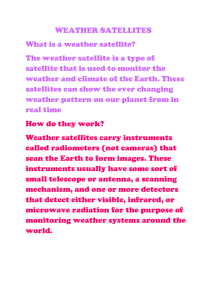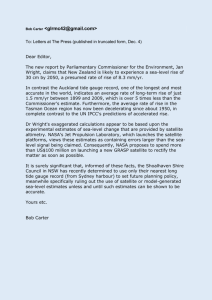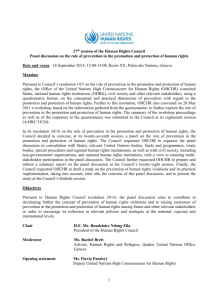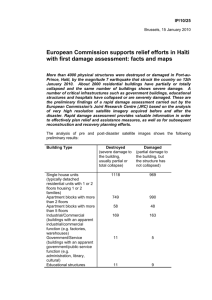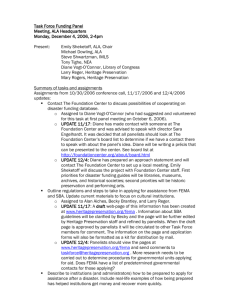Notes - sessions 1, 2 and 5
advertisement
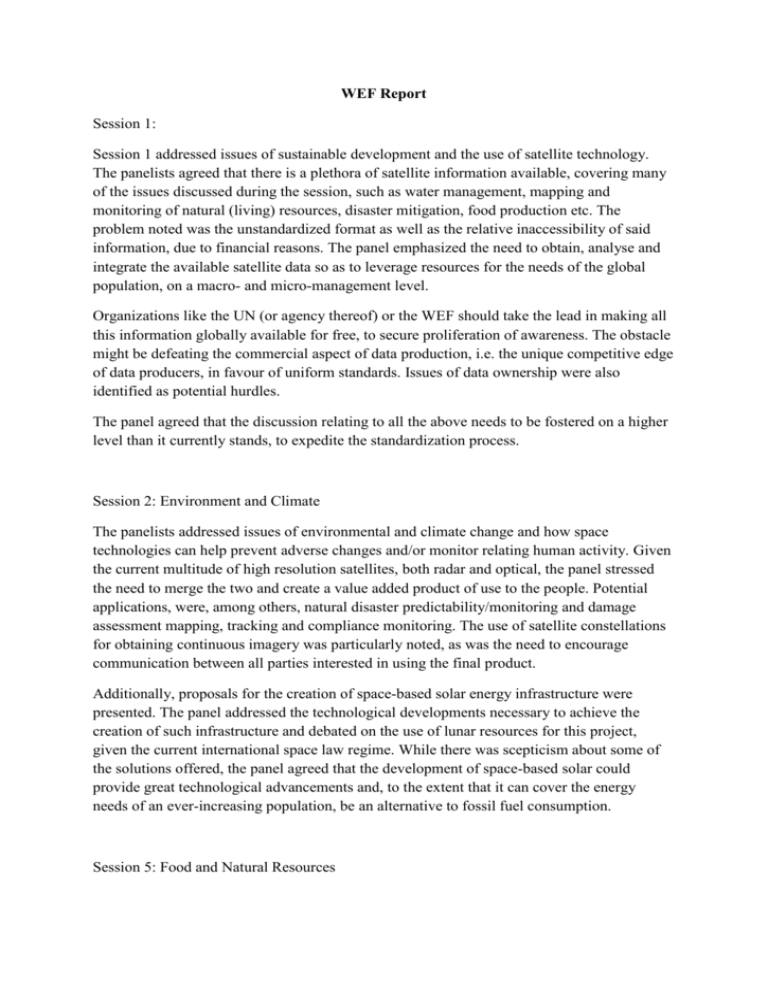
WEF Report Session 1: Session 1 addressed issues of sustainable development and the use of satellite technology. The panelists agreed that there is a plethora of satellite information available, covering many of the issues discussed during the session, such as water management, mapping and monitoring of natural (living) resources, disaster mitigation, food production etc. The problem noted was the unstandardized format as well as the relative inaccessibility of said information, due to financial reasons. The panel emphasized the need to obtain, analyse and integrate the available satellite data so as to leverage resources for the needs of the global population, on a macro- and micro-management level. Organizations like the UN (or agency thereof) or the WEF should take the lead in making all this information globally available for free, to secure proliferation of awareness. The obstacle might be defeating the commercial aspect of data production, i.e. the unique competitive edge of data producers, in favour of uniform standards. Issues of data ownership were also identified as potential hurdles. The panel agreed that the discussion relating to all the above needs to be fostered on a higher level than it currently stands, to expedite the standardization process. Session 2: Environment and Climate The panelists addressed issues of environmental and climate change and how space technologies can help prevent adverse changes and/or monitor relating human activity. Given the current multitude of high resolution satellites, both radar and optical, the panel stressed the need to merge the two and create a value added product of use to the people. Potential applications, were, among others, natural disaster predictability/monitoring and damage assessment mapping, tracking and compliance monitoring. The use of satellite constellations for obtaining continuous imagery was particularly noted, as was the need to encourage communication between all parties interested in using the final product. Additionally, proposals for the creation of space-based solar energy infrastructure were presented. The panel addressed the technological developments necessary to achieve the creation of such infrastructure and debated on the use of lunar resources for this project, given the current international space law regime. While there was scepticism about some of the solutions offered, the panel agreed that the development of space-based solar could provide great technological advancements and, to the extent that it can cover the energy needs of an ever-increasing population, be an alternative to fossil fuel consumption. Session 5: Food and Natural Resources The panel observed that the right to food is internationally recognized and protected. As such, the UN has adopted, as one of its MDGs, the reduction of the undernourished population by half, by the year 2015. The access to sufficient and quality food is known as food security, and it is greatly affected by the physical, social and policy environment. Food insecurity is a dynamic phenomenon, with obvious and obscure aspects, affecting both the developing and the developed world. In order to tackle it, new technologies and accessible information are necessary, for mapping and monitoring food production and distribution, as well as enhancing agricultural methods. Satellite technology can play a major role in this, with the application of “precision agriculture”: a management strategy that uses information technologies to bring data from multiple sources to bear on decisions on food production. Today, it is about whole farm management with a goal of optimizing input and return, currently at about 70%. Space based means are used for navigation, communication and data collection. As such, the existence of standardized networks and timely imagery are essential to integrate and capitalize on highdensity data. While traditional methods of food production management can still be of use, satellite data is the primary source of information for the “big-picture” decisions.



